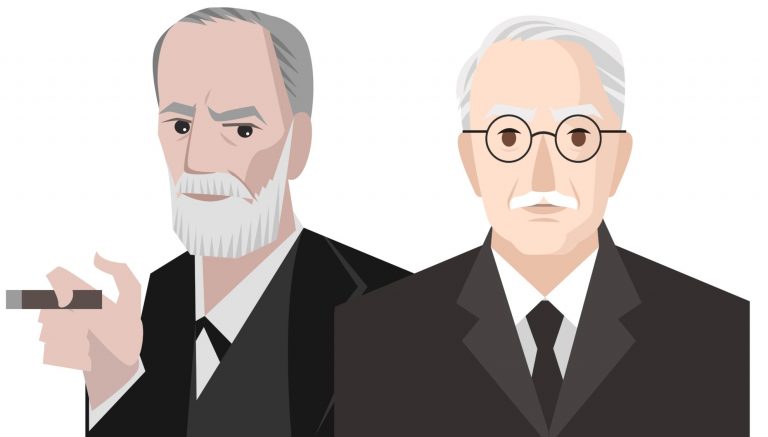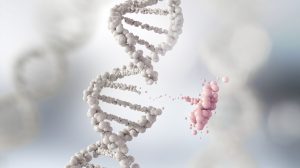Sigmund Freud and Carl Gustav Jung

An artistic depiction of the two notable psychiatrists, Sigmund Freud (left) and Carl Jung (right)
Table of Contents
Sigmund Freud
Sigmund Freud was a famous Austrian neurologist (1856 – 1939), who stated that dreams were the manifestation of the unconscious. Himself and another neurologist, Carl Gustav Jung (1875 – 1961), believed that conscious behavior derived from unconscious instinct which exists in all of us.
These unconscious thoughts were linked to suppressed sexual desires. Freud identified three key stages in the life cycle where the child’s tendency to focus on sexual areas of the body changes over time.
- In the first year of a babies’ life, they focus on the mother’s mammary gland for feeding (the breast).
- This state is succeeded from age 1 to 3 where the toddler is learning how to control their bowel and concentrates on their anal region.
- This is in turn succeeded by attention towards the reproductive organs at age 3 to 4.
Freud argued that in these stages of unconscious repression, male children are attracted to their mother and become instinctively aggressive towards the father. The father reciprocally injects fear into the child by his male superiority, thus insinuating an essence of competition and games theory. Either way, the prime fact is that the child must grow to become sexually active and mature.
Differences Between Jung and Freud
Jung believed that a persons’ brain consisted of the forgotten consciousness and a cluster of memories of past experiences. He came to this hypothesis by studying humans suffering a mental disorder, who had hallucinations that were not a past recollection, thus Jung deduced there was another component of the brain adding to this illusion, i.e. the unconscious.
Freud, on the other hand, believed that the brain was divided into three parts
- The ID – Inherited natural instincts
- The Ego – The sense of self and attitude towards the external environment
- The Superego – Superimposed values deriving from society and parental guidance
Essentially, this method of thinking, and approaching the brain from a self-realizing approach, neurology has been able to develop since these initial theories by Jung and Freud.
It also paved advances in psychiatry, and methods of psychotherapy to combat mental disorders, which are investigated upon in the next tutorial.
You will also like...

Birth of a Human Baby
Following nine months inside the mother's womb is the birth of the baby. Know the different stages of the birthing proce..

Plant Water Regulation
Plants need to regulate water in order to stay upright and structurally stable. Find out the different evolutionary adap..

Amphibians & Early Reptiles
Obtaining air outside an aquatic environment required species to acquire suitable adaptations, and this was the case of ..

Circulation
The circulatory system is key to the transport of vital biomolecules and nutrients throughout the body. Learn about the ..

Biosecurity and Biocontrol
This lesson explores the impact of biosecurity threats, and why they need to be identified and managed. Examples to incl..

Control of Growth & Development
Control of Growth & Development tutorials look at how the genetic makeup determines the biological processes on a da..
